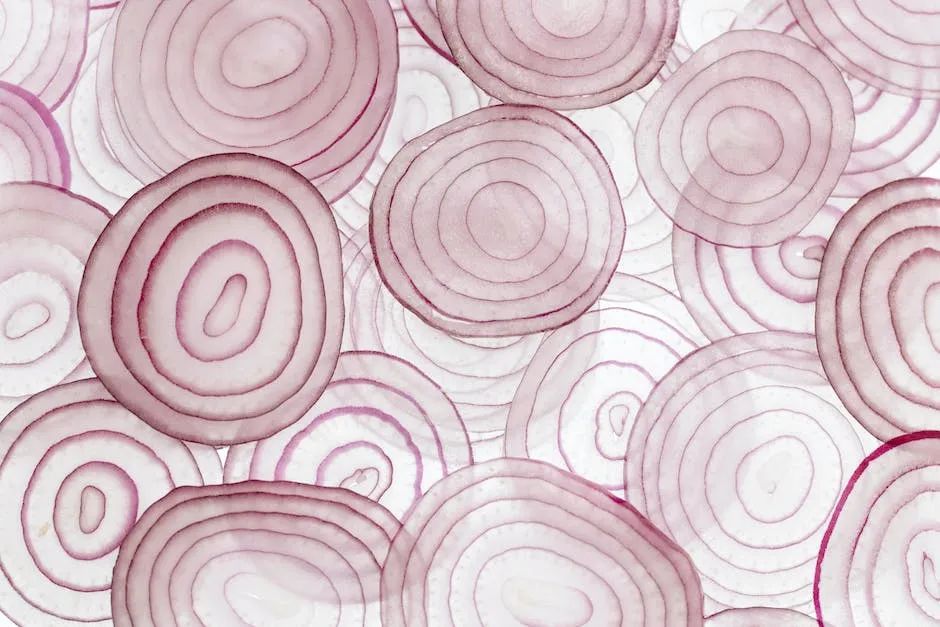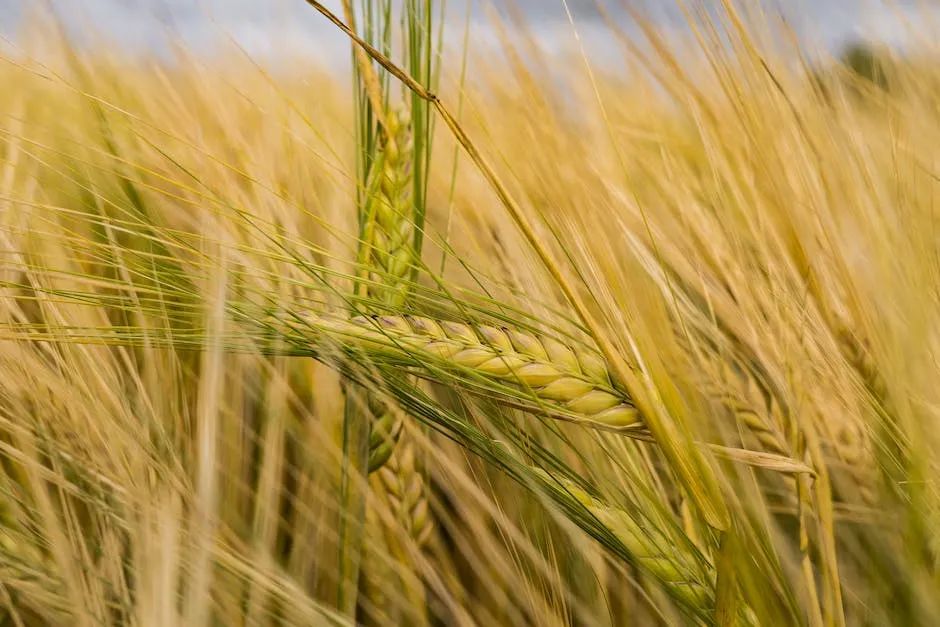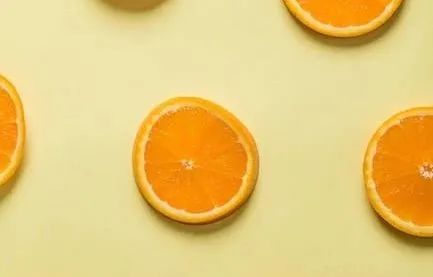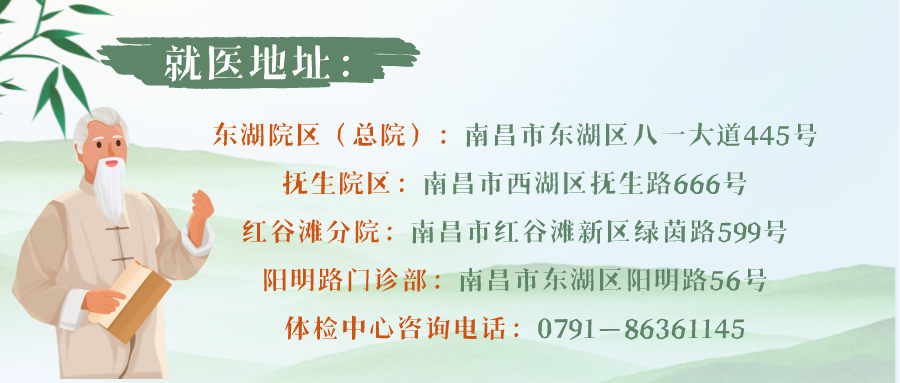 Traditional Chinese Medicine (TCM) believes that body constitution is a relatively stable individual characteristic formed through the interaction of innate endowment and acquired influences, which helps individuals adapt to natural and social environments throughout their life. According to the “Classification and Determination of TCM Body Constitution” standards by the Chinese Association of Traditional Chinese Medicine, there are nine basic types of TCM constitutions: Pinghe (Balanced Constitution), Qixu (Qi Deficiency), Yangxu (Yang Deficiency), Yinxu (Yin Deficiency), Tan Shi (Phlegm-Damp), Shire (Damp-Heat), Xueyu (Blood Stasis), Qiyu (Qi Stagnation), and Te Bing (Special Constitution). Each constitution has different manifestations and dietary recommendations. Do you know which constitution you belong to? Let’s explore them one by one.
Traditional Chinese Medicine (TCM) believes that body constitution is a relatively stable individual characteristic formed through the interaction of innate endowment and acquired influences, which helps individuals adapt to natural and social environments throughout their life. According to the “Classification and Determination of TCM Body Constitution” standards by the Chinese Association of Traditional Chinese Medicine, there are nine basic types of TCM constitutions: Pinghe (Balanced Constitution), Qixu (Qi Deficiency), Yangxu (Yang Deficiency), Yinxu (Yin Deficiency), Tan Shi (Phlegm-Damp), Shire (Damp-Heat), Xueyu (Blood Stasis), Qiyu (Qi Stagnation), and Te Bing (Special Constitution). Each constitution has different manifestations and dietary recommendations. Do you know which constitution you belong to? Let’s explore them one by one. 1. Pinghe (Balanced Constitution)1. Specific Characteristics: ① Physical Characteristics: Well-proportioned and robust body shape. ② Common Manifestations: Complexion and skin are moist and radiant, hair is thick and shiny, eyes are bright, nose is moist, sense of smell is clear, mouth is moist, lips are rosy, not easily fatigued, energetic, tolerant of cold and heat, good sleep, good appetite, normal bowel movements, tongue is light red with thin white coating. ③ Psychological Characteristics: Easy-going and cheerful personality. ④ Strong adaptability to natural and social environments. 2. Dietary Recommendations: Diet should be moderate, with a reasonable combination of coarse and fine grains, and an emphasis on whole grains, vegetables, and fruits; avoid overeating or undereating, and refrain from consuming excessively cold or hot foods, as well as greasy and spicy foods.
1. Pinghe (Balanced Constitution)1. Specific Characteristics: ① Physical Characteristics: Well-proportioned and robust body shape. ② Common Manifestations: Complexion and skin are moist and radiant, hair is thick and shiny, eyes are bright, nose is moist, sense of smell is clear, mouth is moist, lips are rosy, not easily fatigued, energetic, tolerant of cold and heat, good sleep, good appetite, normal bowel movements, tongue is light red with thin white coating. ③ Psychological Characteristics: Easy-going and cheerful personality. ④ Strong adaptability to natural and social environments. 2. Dietary Recommendations: Diet should be moderate, with a reasonable combination of coarse and fine grains, and an emphasis on whole grains, vegetables, and fruits; avoid overeating or undereating, and refrain from consuming excessively cold or hot foods, as well as greasy and spicy foods.

 2. Qixu (Qi Deficiency)1. Specific Characteristics: ① Physical Characteristics: Muscles are generally not robust. ② Common Manifestations: Usually soft-spoken, short of breath, limbs easily fatigued, lack of energy, prone to sweating, tongue is light red, tongue body is enlarged with tooth marks on the edges. Complexion is pale yellow or white, eyes lack luster, mouth is pale, lips are less colorful, hair is dull, dizziness, forgetfulness, normal bowel movements, or constipation without hard stools, or loose stools with a feeling of incomplete evacuation, normal or slightly increased urination. ③ Psychological Characteristics: Introverted personality, emotionally unstable, timid, and risk-averse. ④ Poor tolerance to cold, wind, and heat, easily catching colds. 2. Dietary Recommendations: Suitable foods include those that tonify Qi and strengthen the spleen, such as glutinous rice, millet, red dates, longan flesh, lotus seeds, chicken, beef, crucian carp, yellow eel, and shrimp; teas can be made with Angelica (Dang Gui), Goji berries (Gou Qi), Rehmannia (Shu Di), Ginseng (Ren Shen), Cordyceps (Dong Chong Xia Cao), Prince Ginseng (Tai Zi Shen), Codonopsis (Dang Shen), Astragalus (Huang Qi), Chinese yam (Shan Yao), and jujube (Da Zao). Avoid excessive consumption of raw, cold, bitter, spicy, and hot foods that consume Qi, such as bitter melon (Ku Gua) and longan (Gui Yuan).
2. Qixu (Qi Deficiency)1. Specific Characteristics: ① Physical Characteristics: Muscles are generally not robust. ② Common Manifestations: Usually soft-spoken, short of breath, limbs easily fatigued, lack of energy, prone to sweating, tongue is light red, tongue body is enlarged with tooth marks on the edges. Complexion is pale yellow or white, eyes lack luster, mouth is pale, lips are less colorful, hair is dull, dizziness, forgetfulness, normal bowel movements, or constipation without hard stools, or loose stools with a feeling of incomplete evacuation, normal or slightly increased urination. ③ Psychological Characteristics: Introverted personality, emotionally unstable, timid, and risk-averse. ④ Poor tolerance to cold, wind, and heat, easily catching colds. 2. Dietary Recommendations: Suitable foods include those that tonify Qi and strengthen the spleen, such as glutinous rice, millet, red dates, longan flesh, lotus seeds, chicken, beef, crucian carp, yellow eel, and shrimp; teas can be made with Angelica (Dang Gui), Goji berries (Gou Qi), Rehmannia (Shu Di), Ginseng (Ren Shen), Cordyceps (Dong Chong Xia Cao), Prince Ginseng (Tai Zi Shen), Codonopsis (Dang Shen), Astragalus (Huang Qi), Chinese yam (Shan Yao), and jujube (Da Zao). Avoid excessive consumption of raw, cold, bitter, spicy, and hot foods that consume Qi, such as bitter melon (Ku Gua) and longan (Gui Yuan). 3. Yangxu (Yang Deficiency)1. Specific Characteristics: ① Physical Characteristics: Generally plump and soft body, with weak muscles. ② Common Manifestations: Usually sensitive to cold, hands and feet are cold, prefers warm foods, lack of energy, excessive sleep, tongue is pale and swollen with tooth marks on the edges, moist coating. Complexion is pale, eyes are dull, lips are pale, hair is prone to falling out, prone to sweating, loose stools, and clear, frequent urination. ③ Psychological Characteristics: Generally calm and introverted personality. ④ Poor tolerance to cold, tolerates summer but not winter; prone to dampness. 2. Dietary Recommendations: Suitable foods include warm and hot items, such as onions, garlic, lychee, leeks, shrimp, pepper, chicken, and lamb; teas can be made with red ginseng (Hong Shen), Chinese wolfberry (Shan Yu Guo), cinnamon (Rou Gui), deer antler (Lu Rong), Epimedium (Yin Yang Huo), Morinda root (Ba Ji Tian), Cistanche (Rou Cong Rong), Eucommia (Du Zhong), Goji berries (Gou Qi), and black sesame (Hei Zhi Ma). Avoid excessive consumption of raw and cold foods, such as pears, watermelon, cucumber, winter melon, iced drinks, alcohol, etc.
3. Yangxu (Yang Deficiency)1. Specific Characteristics: ① Physical Characteristics: Generally plump and soft body, with weak muscles. ② Common Manifestations: Usually sensitive to cold, hands and feet are cold, prefers warm foods, lack of energy, excessive sleep, tongue is pale and swollen with tooth marks on the edges, moist coating. Complexion is pale, eyes are dull, lips are pale, hair is prone to falling out, prone to sweating, loose stools, and clear, frequent urination. ③ Psychological Characteristics: Generally calm and introverted personality. ④ Poor tolerance to cold, tolerates summer but not winter; prone to dampness. 2. Dietary Recommendations: Suitable foods include warm and hot items, such as onions, garlic, lychee, leeks, shrimp, pepper, chicken, and lamb; teas can be made with red ginseng (Hong Shen), Chinese wolfberry (Shan Yu Guo), cinnamon (Rou Gui), deer antler (Lu Rong), Epimedium (Yin Yang Huo), Morinda root (Ba Ji Tian), Cistanche (Rou Cong Rong), Eucommia (Du Zhong), Goji berries (Gou Qi), and black sesame (Hei Zhi Ma). Avoid excessive consumption of raw and cold foods, such as pears, watermelon, cucumber, winter melon, iced drinks, alcohol, etc.

 4. Yinxu (Yin Deficiency)1. Specific Characteristics: ① Physical Characteristics: Generally thin and long body shape. ② Common Manifestations: Warm palms and soles, prone to dry mouth and throat, slightly dry nose, thirsty for cold drinks, dry stools, tongue is red with little moisture and coating. Complexion is flushed with a feeling of heat, dry eyes, blurred vision, lips are slightly dry, skin is dry and prone to wrinkles, dizziness, tinnitus, poor sleep, and short, scanty urination. ③ Psychological Characteristics: Impatient, extroverted, and lively personality. ④ Poor tolerance to heat; tolerates winter but not summer; poor tolerance to dryness. 2. Dietary Recommendations: Suitable foods include slightly cool and moistening items, such as duck, pork, pig skin, soft-shelled turtle, pears, mulberries, white fungus, and clams; teas can be made with kudzu root (Ge Gen), lily (Bai He), mulberries (Sang Shen), Chinese yam (Shan Yao), asparagus (Tian Dong), Ophiopogon (Mai Dong), American ginseng (Xi Yang Shen), raw Rehmannia (Sheng Di), Dendrobium (Shi Hu), and Solomon’s seal (Yu Zhu). Avoid excessive consumption of warming and drying foods.
4. Yinxu (Yin Deficiency)1. Specific Characteristics: ① Physical Characteristics: Generally thin and long body shape. ② Common Manifestations: Warm palms and soles, prone to dry mouth and throat, slightly dry nose, thirsty for cold drinks, dry stools, tongue is red with little moisture and coating. Complexion is flushed with a feeling of heat, dry eyes, blurred vision, lips are slightly dry, skin is dry and prone to wrinkles, dizziness, tinnitus, poor sleep, and short, scanty urination. ③ Psychological Characteristics: Impatient, extroverted, and lively personality. ④ Poor tolerance to heat; tolerates winter but not summer; poor tolerance to dryness. 2. Dietary Recommendations: Suitable foods include slightly cool and moistening items, such as duck, pork, pig skin, soft-shelled turtle, pears, mulberries, white fungus, and clams; teas can be made with kudzu root (Ge Gen), lily (Bai He), mulberries (Sang Shen), Chinese yam (Shan Yao), asparagus (Tian Dong), Ophiopogon (Mai Dong), American ginseng (Xi Yang Shen), raw Rehmannia (Sheng Di), Dendrobium (Shi Hu), and Solomon’s seal (Yu Zhu). Avoid excessive consumption of warming and drying foods. 5. Tan Shi (Phlegm-Damp)1. Specific Characteristics: ① Physical Characteristics: Generally overweight, with a soft and full abdomen. ② Common Manifestations: Oily skin on the face, excessive sticky sweat, chest tightness, excessive phlegm. Complexion is pale yellow and dark, eyelids slightly swollen, prone to drowsiness, tongue is enlarged with a white greasy coating, mouth is sticky or sweet, body feels heavy and uncomfortable, prefers rich and sweet foods, normal or loose stools, and scanty or slightly turbid urination. ③ Psychological Characteristics: Generally gentle, stable, humble, and tolerant personality. ④ Poor adaptability to the rainy season and humid environments. 2. Dietary Recommendations: Light diet is recommended, such as corn, buckwheat, Job’s tears, tomatoes, walnuts, seaweed, onions, winter melon, and white radish; teas can be made with Atractylodes (Cang Zhu), magnolia bark (Hou Po), balloon flower (Jie Geng), dried tangerine peel (Chen Pi), Job’s tears (Yi Yi Ren), patchouli (Huo Xiang), Poria (Fu Ling), sand ginger (Sha Ren), and white cardamom (Bai Dou Kou). Avoid excessive consumption of greasy, rich, nourishing, and cold foods.
5. Tan Shi (Phlegm-Damp)1. Specific Characteristics: ① Physical Characteristics: Generally overweight, with a soft and full abdomen. ② Common Manifestations: Oily skin on the face, excessive sticky sweat, chest tightness, excessive phlegm. Complexion is pale yellow and dark, eyelids slightly swollen, prone to drowsiness, tongue is enlarged with a white greasy coating, mouth is sticky or sweet, body feels heavy and uncomfortable, prefers rich and sweet foods, normal or loose stools, and scanty or slightly turbid urination. ③ Psychological Characteristics: Generally gentle, stable, humble, and tolerant personality. ④ Poor adaptability to the rainy season and humid environments. 2. Dietary Recommendations: Light diet is recommended, such as corn, buckwheat, Job’s tears, tomatoes, walnuts, seaweed, onions, winter melon, and white radish; teas can be made with Atractylodes (Cang Zhu), magnolia bark (Hou Po), balloon flower (Jie Geng), dried tangerine peel (Chen Pi), Job’s tears (Yi Yi Ren), patchouli (Huo Xiang), Poria (Fu Ling), sand ginger (Sha Ren), and white cardamom (Bai Dou Kou). Avoid excessive consumption of greasy, rich, nourishing, and cold foods.

 6. Shire (Damp-Heat)1. Specific Characteristics: ① Physical Characteristics: Generally overweight or emaciated. ② Common Manifestations: Oily and dirty complexion, prone to acne and pimples, tongue is red with a yellow greasy coating, prone to bitter mouth and dry mouth, heavy body, irritability, red eyes, dry stools or sticky stools, short and red urination, men prone to dampness in the scrotum, women prone to increased vaginal discharge. ③ Psychological Characteristics: Generally irritable and easily angered personality. ④ Poor adaptability to humid environments or high temperatures, especially in late summer and early autumn when damp heat is prevalent. 2. Dietary Recommendations: Suitable foods include light and damp-dispelling items, such as Job’s tears (Yi Yi Ren), lotus seeds (Lian Zi), bitter melon (Ku Gua), red beans (Chi Xiao Dou), mung beans (Lu Dou), crucian carp, winter melon, loofah, lotus root, and water spinach; avoid excessive consumption of heat-producing, damp-generating, rich, and greasy foods.
6. Shire (Damp-Heat)1. Specific Characteristics: ① Physical Characteristics: Generally overweight or emaciated. ② Common Manifestations: Oily and dirty complexion, prone to acne and pimples, tongue is red with a yellow greasy coating, prone to bitter mouth and dry mouth, heavy body, irritability, red eyes, dry stools or sticky stools, short and red urination, men prone to dampness in the scrotum, women prone to increased vaginal discharge. ③ Psychological Characteristics: Generally irritable and easily angered personality. ④ Poor adaptability to humid environments or high temperatures, especially in late summer and early autumn when damp heat is prevalent. 2. Dietary Recommendations: Suitable foods include light and damp-dispelling items, such as Job’s tears (Yi Yi Ren), lotus seeds (Lian Zi), bitter melon (Ku Gua), red beans (Chi Xiao Dou), mung beans (Lu Dou), crucian carp, winter melon, loofah, lotus root, and water spinach; avoid excessive consumption of heat-producing, damp-generating, rich, and greasy foods. 7. Xueyu (Blood Stasis)1. Specific Characteristics: ① Physical Characteristics: Generally thin individuals. ② Common Manifestations: Dark complexion, skin is dark or pigmented, prone to bruising and pain, lips are dark or purple, tongue is dark with spots and patches, varicose veins under the tongue. Dark circles around the eyes, dark nasal area, hair prone to falling out, dry skin, women often experience dysmenorrhea, amenorrhea, or menstrual blood with clots, or dark purple menstrual blood, menorrhagia, or bleeding tendencies, such as hemoptysis. ③ Psychological Characteristics: Generally irritable, forgetful, and anxious personality. ④ Poor tolerance to wind and cold. 2. Dietary Recommendations: Suitable foods include those that invigorate Qi and promote blood circulation, such as hawthorn (Shan Zha), red dates (Hong Zao), oranges (Ju Zi), cilantro (Coriander), carrots, black fungus (Mu Er), lotus root (Luo Bo), corn, ginger, chicken, and beef. Avoid excessive consumption of cold, warming, greasy, and astringent foods.
7. Xueyu (Blood Stasis)1. Specific Characteristics: ① Physical Characteristics: Generally thin individuals. ② Common Manifestations: Dark complexion, skin is dark or pigmented, prone to bruising and pain, lips are dark or purple, tongue is dark with spots and patches, varicose veins under the tongue. Dark circles around the eyes, dark nasal area, hair prone to falling out, dry skin, women often experience dysmenorrhea, amenorrhea, or menstrual blood with clots, or dark purple menstrual blood, menorrhagia, or bleeding tendencies, such as hemoptysis. ③ Psychological Characteristics: Generally irritable, forgetful, and anxious personality. ④ Poor tolerance to wind and cold. 2. Dietary Recommendations: Suitable foods include those that invigorate Qi and promote blood circulation, such as hawthorn (Shan Zha), red dates (Hong Zao), oranges (Ju Zi), cilantro (Coriander), carrots, black fungus (Mu Er), lotus root (Luo Bo), corn, ginger, chicken, and beef. Avoid excessive consumption of cold, warming, greasy, and astringent foods.

 8. Qiyu (Qi Stagnation)1. Specific Characteristics: ① Physical Characteristics: Generally thin individuals. ② Common Manifestations: Introverted and unstable personality, melancholic and fragile, sensitive and suspicious, poor adaptability to mental stimuli, usually appearing gloomy, often feeling distressed. Chest and flank fullness, or wandering pain, often accompanied by sighing, belching, or a sensation of a foreign body in the throat, or breast tenderness, poor sleep, reduced appetite, palpitations, forgetfulness, excessive phlegm, dry stools, normal urination, tongue is light red with thin white coating. ③ Psychological Characteristics: Generally introverted and unstable, melancholic and fragile, sensitive and suspicious. ④ Poor adaptability to mental stimuli; dislikes rainy weather. 2. Dietary Recommendations: Suitable foods include those that promote Qi movement and relieve stagnation, such as wheat, hawthorn (Shan Zha), kelp (Hai Dai), radish, scallions, garlic, and oranges; teas can be made with hawthorn (Shan Zha), Buddha’s hand (Fo Shou), bitter orange peel (Zhi Ke), cyperus (Xiang Fu), he huan flower (He Huan Hua), and rose (Mei Gui Hua). Avoid excessive consumption of astringent and sour foods, such as black plum (Wu Mei), pomegranate (Shi Liu), bayberry (Yang Mei), sour jujube (Suan Zao), to prevent Qi stagnation, and also avoid excessive consumption of frozen foods, coffee, alcohol, etc.
8. Qiyu (Qi Stagnation)1. Specific Characteristics: ① Physical Characteristics: Generally thin individuals. ② Common Manifestations: Introverted and unstable personality, melancholic and fragile, sensitive and suspicious, poor adaptability to mental stimuli, usually appearing gloomy, often feeling distressed. Chest and flank fullness, or wandering pain, often accompanied by sighing, belching, or a sensation of a foreign body in the throat, or breast tenderness, poor sleep, reduced appetite, palpitations, forgetfulness, excessive phlegm, dry stools, normal urination, tongue is light red with thin white coating. ③ Psychological Characteristics: Generally introverted and unstable, melancholic and fragile, sensitive and suspicious. ④ Poor adaptability to mental stimuli; dislikes rainy weather. 2. Dietary Recommendations: Suitable foods include those that promote Qi movement and relieve stagnation, such as wheat, hawthorn (Shan Zha), kelp (Hai Dai), radish, scallions, garlic, and oranges; teas can be made with hawthorn (Shan Zha), Buddha’s hand (Fo Shou), bitter orange peel (Zhi Ke), cyperus (Xiang Fu), he huan flower (He Huan Hua), and rose (Mei Gui Hua). Avoid excessive consumption of astringent and sour foods, such as black plum (Wu Mei), pomegranate (Shi Liu), bayberry (Yang Mei), sour jujube (Suan Zao), to prevent Qi stagnation, and also avoid excessive consumption of frozen foods, coffee, alcohol, etc. 9. Te Bing (Special Constitution)1. Specific Characteristics: ① Physical Characteristics: No special features, or deformities, or congenital physiological defects. ② Common Manifestations: Genetic diseases with vertical inheritance, congenital and familial characteristics; maternal influence on fetal growth and development and related disease characteristics. ③ Psychological Characteristics: Varies due to specific conditions of constitution. ④ Poor adaptability, such as allergic constitution with poor adaptability to allergens, easily triggering chronic diseases. 2. Dietary Recommendations: A balanced and nutritious diet is recommended, with a proper combination of coarse and fine grains, and a reasonable mix of meat and vegetables, focusing on foods that tonify Qi and strengthen the exterior, such as Chinese yam (Shan Yao), rice (Da Mi), and shiitake mushrooms (Xiang Gu); avoid foods that are likely to cause allergies, such as buckwheat, beef, carp, shrimp, crab, alcohol, spicy foods, and foods containing allergens.Expert Introduction
9. Te Bing (Special Constitution)1. Specific Characteristics: ① Physical Characteristics: No special features, or deformities, or congenital physiological defects. ② Common Manifestations: Genetic diseases with vertical inheritance, congenital and familial characteristics; maternal influence on fetal growth and development and related disease characteristics. ③ Psychological Characteristics: Varies due to specific conditions of constitution. ④ Poor adaptability, such as allergic constitution with poor adaptability to allergens, easily triggering chronic diseases. 2. Dietary Recommendations: A balanced and nutritious diet is recommended, with a proper combination of coarse and fine grains, and a reasonable mix of meat and vegetables, focusing on foods that tonify Qi and strengthen the exterior, such as Chinese yam (Shan Yao), rice (Da Mi), and shiitake mushrooms (Xiang Gu); avoid foods that are likely to cause allergies, such as buckwheat, beef, carp, shrimp, crab, alcohol, spicy foods, and foods containing allergens.Expert Introduction Lan Zhihui Chief TCM Physician
Lan Zhihui Chief TCM Physician
Specializes in the diagnosis and treatment of respiratory system diseases and TCM syndrome differentiation, such as acute and chronic cough, bronchial asthma, chronic obstructive pulmonary disease (COPD), pulmonary heart disease, lung cancer, bronchiectasis, pneumonia, respiratory failure, pulmonary interstitial fibrosis, pleural effusion, pulmonary nodules, sleep apnea syndrome, etc. Has rich experience in the TCM treatment of chronic diseases and different constitutions.
Outpatient Hours at Donghu District:Wednesday morning, Saturday morning (Respiratory and Critical Care Medicine Clinic))
Saturday morning (Post-COVID-19 Pulmonary Fibrosis Rehabilitation Clinic))
First Review: Chen Yun
Second Review: Shen Desen Third Review: Liao Donghua


Share

Collect

Like

View

